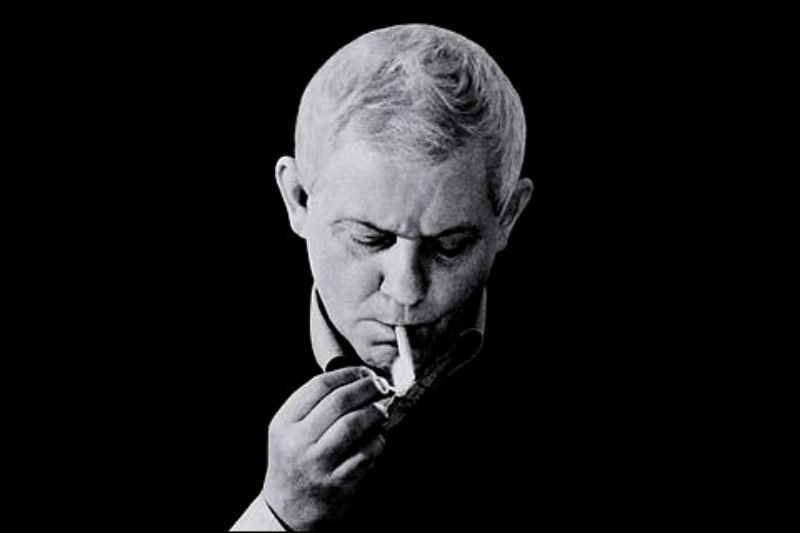In the pedestrian area of Friedrichstrasse near Mehringplatz in Berlin there is a ‘Path of Visionaries’. It is the European Union writ large in stone. The EU says: ‘Each member state is represented with a quote from an outstanding personality on a ‘‘Panel of Nations’’. Together they form a bond of shared values, visions and the diversity of cultures of the European Community.’

Poland is represented by poet and essayist Zbigniew Herbert. His quote is this:
‘The loss of memory by a nation is also a loss of its conscience.’
This is not merely personal observation of his own country, but can be transferred onto the history of any nation. It is a warning. The extrapolation being that as the loss of conscience grows with each succeeding generation then righting the boat on the sea of forgetfulness will become impossible. In the end, what people don’t know, they won’t miss.
An admission. Zbigniew Herbert is a hero of mine. In 1998, I wrote to him along the lines of Hi, you don’t know me but ….. A faint hope in a letter sent from Melbourne to the other side of the world to just say thanks, for his words, his imagery, his eye for the world and the soul. He never received it. He had died as the letter made its way to him.
Herbert’s life and words have surfaced these past days as it’s 100 years since his birth. He was born in 1924 in Lwow (now Lviv, capital of Ukraine). In his teenage years he experienced the maelstrom of war, first from the Soviets, then the Nazis, then at war’s end to the Soviets. It was not until 1956, and the political thaw occurred, that his first book of poems appeared, Chord of Light. His literary life had begun. He travelled widely and lived in several countries. He was realist, romantic and classicist (his essays are things of beauty). The poet Czeslaw Milosz played a large part in his forming as a poet and published a translation of work.
I came upon Herbert’s work through the figure of Mr Cogito, the bearer of his poetic imagination. It is the 50th anniversary of the debut collection Mr Cogito, which propelled him into the wider literary world. An extract to one of the poems Mr Cogito and the Movement of Thought is:
‘Thoughts cross the mind
a common idiom has it
the common idiom
overestimates thoughts’ mobility
a majority of them
stand motionless
in a dull landscape
of bleak hillocks
and withered trees
sometimes they reach
the rushing river of someone else’s thoughts
they stand on the bank
on one leg
like hungry herons…’
Much of Herbert’s poetry is a tapestry woven from the threads of the individual, the part of history in the sculpting of times and people, and the core that remains when all else is stripped back.
The Poetry Foundation website quotes Herbert: ‘In Poland, we think of the poet as prophet; he is not merely a maker of verbal forms or an imitator of reality. The poet expresses the deepest feelings and the widest awareness of people. … The language of poetry differs from the language of politics. And, after all, poetry lives longer than any conceivable political crisis.
‘The poet looks over a broad terrain and over vast stretches of time. He makes observations on the problems of his own time, to be sure, but he is a partisan only in the sense that he is a partisan of the truth. He arouses doubts and uncertainties and brings everything into question.’
In another interview, Herbert looked through reality’s lens and made the similar point as Auden famously did in his poem In Memory of W.B. Yeats: ‘For poetry makes nothing happen: it survives/In the valley of its making…’
Herbert said, ‘It is vanity to think that one can influence the course of history by writing poetry. It is not the barometer that changes the weather.’
This is true, but so too is the chain that is formed from the links of words that flow from one to the other. This is how words, such as those on a footpath in Berlin, can live beyond tyrannies, even if the path is destroyed. They are carried away in people’s hearts and minds
Happy 100 years Zbigniew, from a fan in Melbourne. Your words are chords of light, indeed.
And perhaps the quote ‘the loss of memory by a nation is also a loss of its conscience’ should be etched above every parliament’s chambers, including the one in Canberra.
Warwick McFadyen is an award-winning journalist. He has won two Walkley Awards and four Quill Awards. He has published several books of poetry. The latest is 21+4 Poems. His prose and poems have also appeared in Quadrant, Overland and Dissent.
Main image: Zbigniew Herbert (Anna Beata Bohdziewicz)